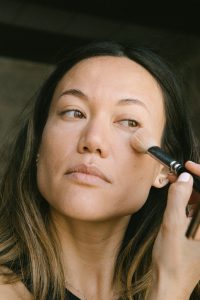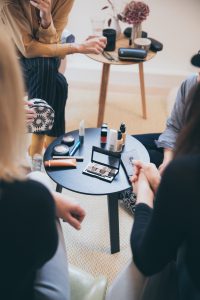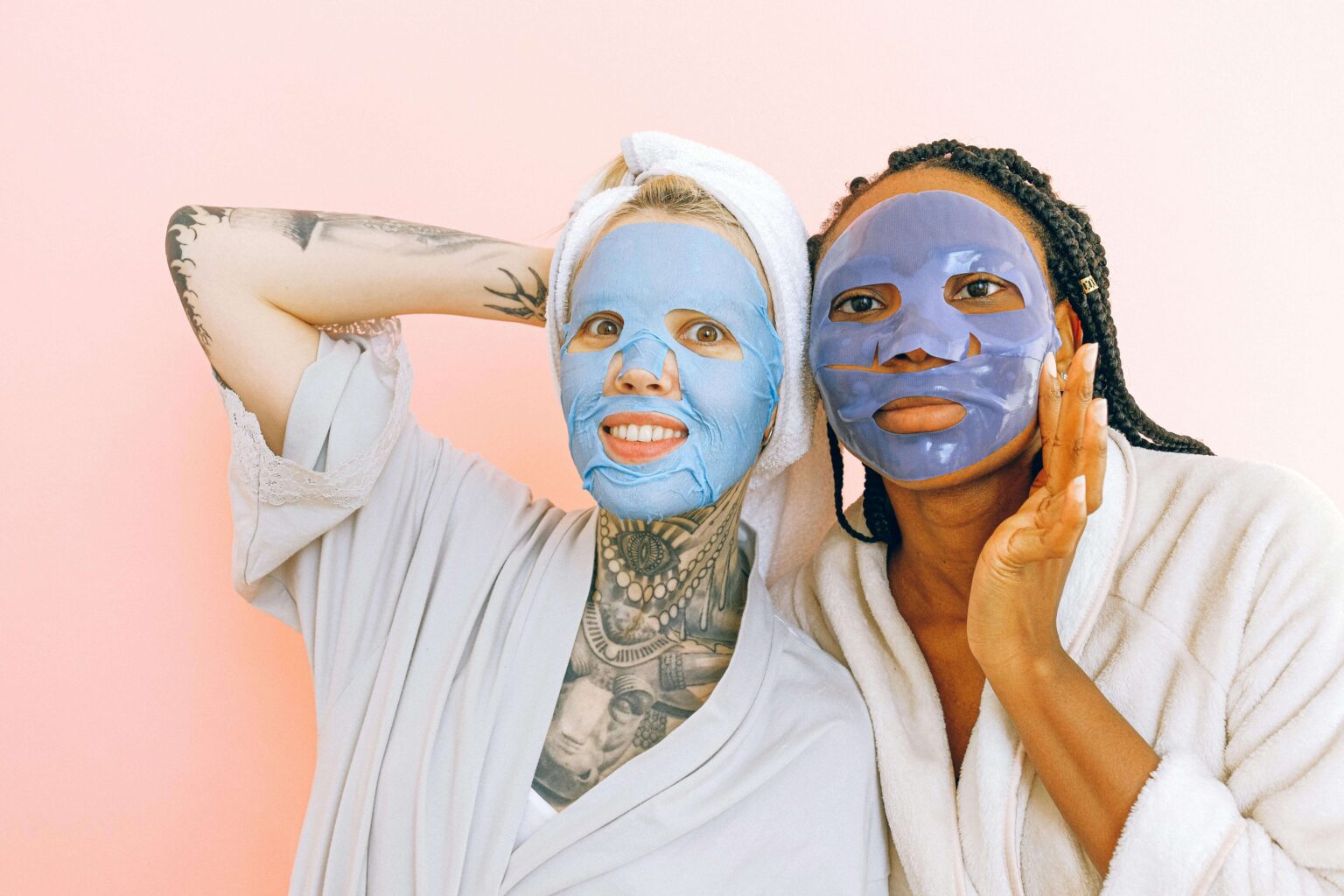Expert Tips on What Not To Do

Makeup can be a powerful tool to enhance our natural beauty, but it’s important to keep in mind that not all makeup is created equal. Depending on your skin type, certain makeup products and techniques may not work for you and can even lead to skin problems. Here are some common makeup mistakes to avoid based on your skin type.
Oily Skin
If you have oily skin, the last thing you want is to add more oil to your face. Avoid using oil-based foundations, primers, and moisturizers, as they can clog your pores and lead to breakouts. Instead, opt for oil-free or water-based products that will help control oil production and keep your skin matte.
Another mistake to avoid is applying too much powder. While it may seem like a good idea to set your makeup with powder to prevent oiliness, using too much powder can actually make your skin look cakey and emphasize your pores. Instead, use a small amount of powder only on your T-zone or other oily areas, and use a fluffy brush to blend it in well.
Lastly, avoid using heavy or full-coverage foundations that can suffocate your skin and make it look even oilier. Instead, use lightweight or medium-coverage foundations that allow your skin to breathe and give you a natural finish.
Dry Skin
If you have dry skin, you want to focus on products that will hydrate and nourish your skin. Avoid using matte or powder-based foundations that can make your skin look even drier and emphasize fine lines and wrinkles. Instead, opt for creamy or liquid-based foundations that provide moisture and give you a dewy finish.
Another mistake to avoid is skipping moisturizer before applying makeup. Moisturizing is key for dry skin, as it helps to create a smooth canvas for your makeup and prevents it from clinging to dry patches. Make sure to use a rich, hydrating moisturizer before applying makeup, and let it sink in for a few minutes before moving on to the next step.
Lastly, avoid using products that contain alcohol, as they can dry out your skin even more. Instead, look for products that contain hyaluronic acid, glycerin, or other hydrating ingredients that will plump and nourish your skin.
Sensitive Skin
If you have sensitive skin, it’s important to be careful with the products and techniques you use. Avoid using products that contain fragrances, as they can irritate your skin and cause redness and inflammation. Instead, opt for fragrance-free and hypoallergenic products that are gentle on your skin.
Another mistake to avoid is using harsh exfoliants or scrubs that can damage your skin’s natural barrier and cause sensitivity. Instead, opt for gentle exfoliants, such as chemical exfoliants or enzyme-based exfoliants, that will slough off dead skin cells without causing irritation.
Lastly, avoid using too many products at once, as layering too many products can overload your skin and cause it to become sensitized. Stick to a simple routine that includes a gentle cleanser, moisturizer, and SPF, and add other products slowly and one at a time to see how your skin reacts.

Combination Skin
If you have combination skin, you may have oily areas in some parts of your face and dry areas in others. It can be tricky to find products that work for both, but it’s not impossible. One mistake to avoid is using one type of product all over your face. Instead, use different products on different areas of your face, depending on their needs.
For example, use a lightweight, oil-free moisturizer on your T-zone to control oil production, and a richer, more hydrating moisturizer on your cheeks to nourish dry areas. Use a matte or powder-based foundation on your T-zone to control shine, and a creamy or liquid-based foundation on your cheeks to provide moisture and a dewy finish.
Another mistake to avoid is using too much product on your T-zone. While you may be tempted to apply more product to control oiliness, using too much product can actually make your skin look cakey and emphasize your pores. Use a small amount of product on your T-zone and blend it in well, and use a separate product on your dry areas to prevent them from looking flaky.
Lastly, avoid using harsh products, such as alcohol-based toners or astringents, that can strip your skin of its natural oils and cause it to become imbalanced. Instead, opt for gentle, pH-balanced products that will keep your skin’s natural barrier intact.
Mature Skin
If you have mature skin, you want to focus on products that will nourish and plump your skin, and minimize the appearance of fine lines and wrinkles. One mistake to avoid is using heavy, full-coverage foundations that can settle into fine lines and make them look more prominent. Instead, opt for lightweight or medium-coverage foundations that will give you a natural finish and won’t emphasize your wrinkles.
Another mistake to avoid is skipping primer. Primer is important for mature skin, as it helps to smooth out fine lines and create a smooth canvas for your makeup. Look for primers that contain hyaluronic acid or other plumping ingredients that will hydrate and firm your skin.
Lastly, avoid using products that contain alcohol, as they can dry out your skin and make it look more aged. Instead, opt for products that contain antioxidants, such as vitamin C or green tea, that will protect your skin from free radicals and help to boost collagen production.
In Conclusion
Makeup can be a fun and transformative way to enhance our natural beauty, but it’s important to keep in mind that not all makeup is created equal. By avoiding these common makeup mistakes based on your skin type, you can create a flawless and healthy base for your makeup and prevent skin problems. Remember to always patch test new products before using them all over your face, and to listen to your skin’s needs and adjust your routine accordingly. With the right products and techniques, you can achieve a beautiful and radiant complexion that will make you feel confident and empowered.



